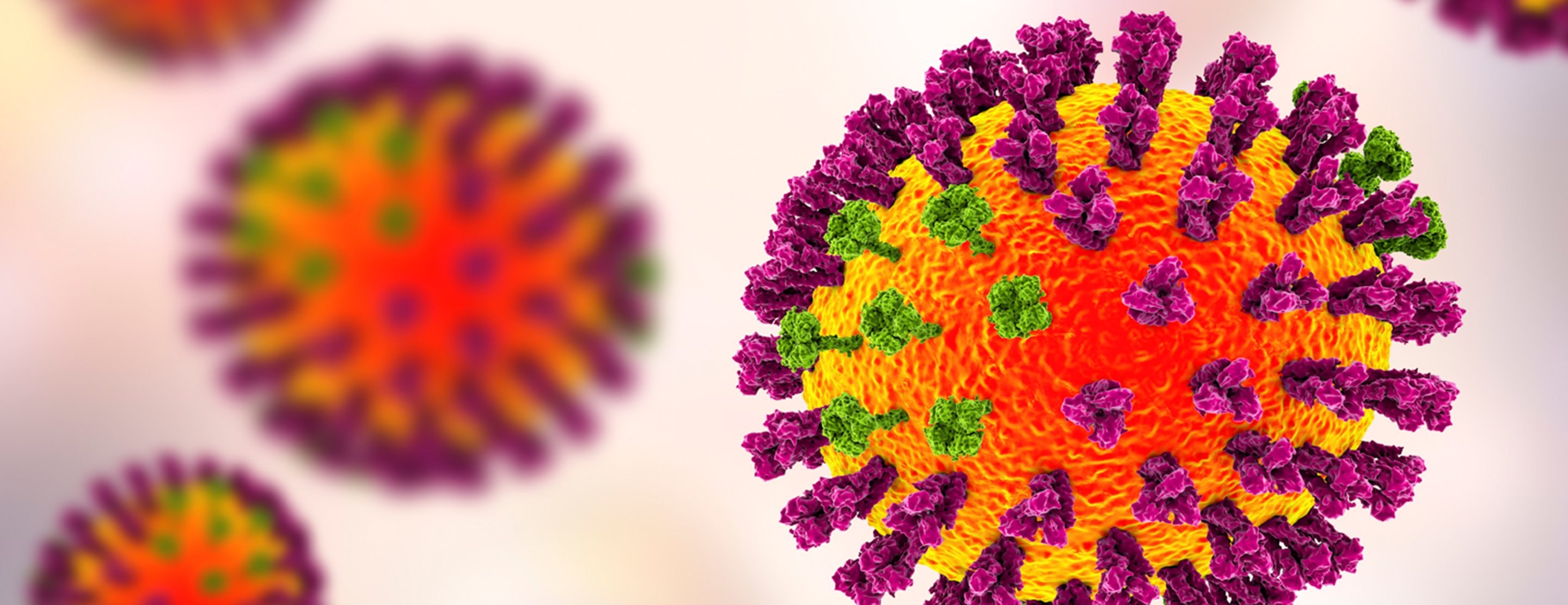- Flu Prevention: Get Your Flu Shot
- More Flu Prevention Strategies
- Signs and Symptoms of the Flu
- Flu Transmission
- Diagnosis
- Flu Treatment
- Flu Complications
Flu Prevention: Get Your Flu Shot
Want to avoid spending the winter curled up with a pile of tissues and painkillers? The single best way to prevent the flu is to get vaccinated each fall before the season begins in October. While your annual flu shot can't offer total protection, it will greatly reduce your chances of contracting this potentially deadly virus – and of passing it on to someone else.
Your local drugstore pharmacy is probably the easiest and closest place to get a flu shot. Most pharmacies allow you to schedule an appointment online, and they often take walk-ins if they're not booked up.
The 2024-2025 flu vaccine will also be available to UCSF patients at primary care clinics and during scheduled visits. Find out more on our flu shot clinics page.
More about the flu vaccine
The Centers for Disease Control and Prevention recommends that everyone age 6 months or older receive a flu shot. It starts protecting you about two weeks after the injection, and protection lasts up to a year. Some people who get vaccinated still come down with the flu, but they usually have a milder case than those who didn't get the shot.
Influenza vaccine has been used in the United States for many years. Since flu viruses change often, the vaccine is typically updated every year.
The vaccine is especially important for people at higher risk of complications from the flu, including:
- Pregnant women
- People with certain medical conditions, including asthma, diabetes and chronic lung disease
- People who live with or care for infants
- Adults age 65 or older
- Children age 5 or younger
Some people should not receive a flu shot without first speaking to their health care provider, including those who:
- Have had a bad reaction to the flu shot in the past
- Have a fever on the day they're scheduled for a flu shot
Patients with underlying diseases, such as certain blood or neuromuscular disorders, should also speak to their doctor about whether it's safe to get a flu shot.
In the past, some people with egg allergies were told not to get the flu shot. That advice has changed: Based on strong evidence that the flu vaccine is safe for people who are allergic to eggs, the Joint Task Force of the American Academy of Allergy, Asthma & Immunology (AAAAI) and the American College of Allergy, Asthma & Immunology (ACAAI) say no special precautions are needed.
With that in mind, patients getting flu shots will not be asked whether they have an egg allergy. To find out more, visit the AAAAI's Egg Allergy and the Flu Vaccine page. It includes this helpful video: "Should I get the flu shot if I have an egg allergy?" If you have concerns, talk with your doctor.
More Flu Prevention Strategies
A few prescription antiviral medications for preventing the flu are approved and commercially available. People at high risk of catching the flu, such as health care workers, and those at special risk for complications should speak with their doctor about using an antiviral medication to help prevent the illness.
In addition, there are a number of ways to reduce the likelihood of catching and spreading respiratory illnesses like the flu:
- Wash your hands. Hand-washing is one of the most basic and proven methods for stopping the spread of disease. Wash your hands frequently using soap and water, especially after coughing, sneezing or touching commonly shared items in your house or workplace.
- Cover your mouth and nose. Cough or sneeze into your elbow or upper sleeve, and ask people around you to do the same.
- Avoid touching your eyes, nose and mouth. Germs often spread when people handle something contaminated and then touch their eyes, nose or mouth.
- Limit close contact. Limit contact with people who are sick. And when you're sick, keep your distance from others.
- Stay home when you're sick. If you have the flu, take precautions to limit exposing others to the virus. If possible, stay home from work and school. It's best to avoid attending public and family gatherings as well as running errands.
Signs and Symptoms of the Flu
Signs and symptoms include:
- Fever, often around 102° Fahrenheit
- Headache
- Extreme tiredness
- Dry cough
- Sore throat
- Runny or stuffy nose
- Muscle aches
In addition, gastrointestinal symptoms such as nausea, vomiting and diarrhea sometimes accompany the flu. These are much more common in children than in adults.
Many people use the term "stomach flu" to describe illnesses with nausea, vomiting or diarrhea. Although these symptoms sometimes can be related to the flu, they're rarely the main symptoms of influenza, which tends to be a respiratory rather than a stomach or intestinal disease. Other viruses, bacteria or even parasites can cause gastrointestinal symptoms.
Flu Transmission
The flu is contagious. You can spread the flu starting one day before you feel sick and up to seven days after getting sick. Children can be contagious for longer than seven days.
Flu viruses are spread when someone with the flu coughs, sneezes or speaks and spreads virus-laden droplets into the air that others inhale. The virus also can spread when somebody handles a surface with flu viruses on it, such as a door handle, and then touches their eyes, nose or mouth.
Diagnosis
You may have the flu if you have a sudden onset of body aches, fever and respiratory symptoms, especially if your illness occurs between October and April – the usual flu season in the United States. However, people can get the flu at any time of the year.
Although doctors often diagnose the flu by evaluating symptoms, it's impossible to tell for sure whether you have the flu based on symptoms alone, as other respiratory illnesses can cause similar symptoms. Tests can offer a definitive diagnosis but need to be performed in the first two or three days after your symptoms begin. A physical examination may be needed to determine if you have another health issue that is a complication of the flu.
Flu Treatment
If you develop the flu, it's best to rest and give your body a chance for a complete and speedy recovery.
- Get plenty of rest
- Drink lots of liquids
- Avoid using alcohol and tobacco
You can take medications to relieve your symptoms but never give aspirin to children or teenagers who have flu-like symptoms, particularly fever, without first speaking to a doctor. Giving aspirin to children and teenagers with the flu can cause a rare but serious illness called Reye's syndrome. Children or teenagers with the flu should get plenty of rest, drink lots of liquids, and take medicines that don't contain aspirin to relieve symptoms.
If you have unusually severe symptoms, such as trouble breathing, or if you're at special risk of complications, contact your doctor as soon as your symptoms begin. You may be able to take an antiviral medication, which could reduce the severity and possibly shorten the course of the illness. Talk to your doctor right away, as you must start these medications in the first two days of illness.
Flu Complications
Complications caused by the flu include bacterial pneumonia and dehydration. In addition, the flu can worsen chronic medical conditions, such as congestive heart failure, asthma and diabetes. Children may develop sinus problems and ear infections as a result of the flu.
UCSF Health medical specialists have reviewed this information. It is for educational purposes only and is not intended to replace the advice of your doctor or other health care provider. We encourage you to discuss any questions or concerns you may have with your provider.















